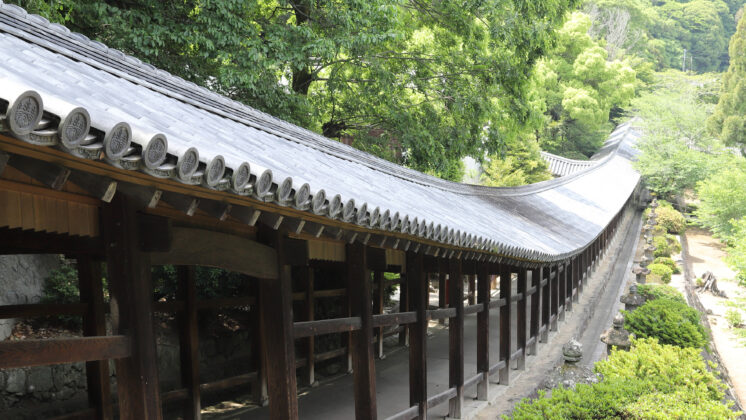Strategy: Understanding the External Environment
To plan strategy on any level, you need to understand your company's external environment. In fact, your level of understanding can impact hiring, budgeting, marketing, or nearly any other part of the business world. Want to learn how to do all that? This course from GLOBIS Unlimited is the perfect first step!
Using Japanese Values to Thrive in Global Business
Japanese companies have unique cultural, communication, and operational challenges. But they also have values that have led to remarkable longevity. Check out this seminar to hear how these values help earn trust from overseas head offices and develop employees.
Over 90% of startups fail. That sounds dramatic, but the truth is, creative destruction and constant change are a central part of doing business. The business life cycle is, for many organizations, completely natural.
And yet, some companies survive for centuries, outliving their founders and extending their growth stage despite a changing world. Many of these companies are Japanese.
Japan has over 26,000 companies that have been trading for 100 years or more. And out of all the businesses in the world that are over 200 years old, as much as 45% are Japanese. In fact, as of 2017, Japan has 600 businesses that are 300 years old, 190 firms over 400, and an incredible 40 companies with over 500 years of history.
Some of that is about a values-driven approach to setting long-term business goals. But surely, there’s more to it.
Next Article
Japanese Values & Longevity: The Oldest Companies in the World
Students at the GLOBIS University Nagoya Campus examined 69 Japanese companies with more than 300 years of history. They discovered three main characteristics that have helped these companies survive (and thrive) for centuries, defying the business life cycle:
- Core competency
- Evolution
- Market understanding
- Simplicity

How to Set Long-Term Goals to Break the Business Life Cycle
1. Identify your core competency.
The companies in the study have survived a lot of history. They traded through Japan’s Sakoku period of deliberate isolation that began in the 1600s. They survived the Meiji Restoration in 1868, the Sino-Japanese War in 1894, and the Russo-Japanese War in 1904. They survived World Wars I and II.
Naturally, the products and services they sell have changed significantly over time. But because these companies were able to deeply understand their own strengths and value, they were able to set long-term business goals in spite of environmental changes.
Strategy: Understanding the External Environment
To plan strategy on any level, you need to understand your company's external environment. In fact, your level of understanding can impact hiring, budgeting, marketing, or nearly any other part of the business world. Want to learn how to do all that? This course from GLOBIS Unlimited is the perfect first step!
The first Japanese secret to business longevity is understanding your company’s core competence.
Companies that harnessed this power include Fujifilm (founded in 1934) and Kodak (1888). Although both are relatively young, they are prime examples of understanding core competency (or not) when a primary business is threatened by a changing market. Fujifilm and Kodak both started as successful film manufacturers, but due to the advent of digital cameras, their customer base vanished.
Kodak decided its core competency was “tech to create film.” But customers no longer needed tech to create film once things went digital. As a result, Kodak was not able to adapt, their goal-setting value completely died, and the company went bankrupt in 2012.
On the other hand, Fujifilm noticed that their core competency was in “technology to apply extremely thin film.” This small change made a huge difference. In 2016, Fujifilm created the successful cosmetics business Astalift, which applies antiaging technology developed from that core photographic film technology.
Years after Kodak suffered its defeat, Fujifilm moved into a new growth phase and expanded its market share.
Next Article
VUCA Leadership: Can You Think the Unthinkable?
Moonshot Innovation: How to Lead Business Process Transformation
2. Evolve with the times.
Okaya & Co. began trading agricultural and iron products across Japan in 1669. Centuries later, it became a major importer of computer chips from Intel.
This seems like a smart shift in long-term business goals. But how did they accomplish it?
Okaya acknowledged that its core competency was the ability to “synchronize relationships”: For every seller, there is a buyer. From the moment Okaya identified that core competency, its business was no longer limited to traditional products. Its strategy was now free to revolve around the very latest technology.
Japanese sake manufacturer Gekkeikan (founded in 1637) notes that its core competency is the ability to “scientifically merge intuition and experience.” As a result, the company has expanded its business in a variety of new ways, even doing what was once thought impossible: producing sake in America.
If you want to break the business life cycle, your company needs to evolve.
3. Know your market.
Business longevity isn’t only a matter of seizing trends such as digitalization and globalization. It’s also about doing business in fields where change is slow. For example, the basic model of hotels and Japanese ryokan inns has not changed significantly over time.
Using Japanese Values to Thrive in Global Business
Japanese companies have unique cultural, communication, and operational challenges. But they also have values that have led to remarkable longevity. Check out this seminar to hear how these values help earn trust from overseas head offices and develop employees.
Why is there less pressure to evolve when others (like Kodak) fall hard when they try to stick to their product roots?
Because the product or service a company offers counts. Hotels and inns generally only need to provide customers with food and a place to sleep. The restaurant and construction industries are similar. Modern consumer electronics such as mobile phones, on the other hand, have a core value that changes frequently.
Your company must keep up with your industry’s particular brand of customer service, or you’ll fall behind fast.
4. Keep it simple.
Last, but certainly not least, companies that break the business life cycle over centuries tend to focus on products and services for which changes in functionality are small. It’s tempting (and sometimes appropriate) to start a business with the latest technology serving an emerging need. But it’s important to note that such a business model will raise the hurdle for your business’s longevity.
Take sake and Japanese confectioneries. These industries change slowly, and their essential value does not make big shifts, so they naturally endure longer.
But a sector like the automotive industry? Certainly, the basic function of cars has not altered much since they were first introduced. They still take us from Point A to Point B. However, research shows that when there are changes (such as shifting from gasoline to hybrid vehicles and electric cars) the shifts are huge. This makes the operating risks much bigger.
Tailor Your Long-Term Business Goals
In an age when everyone seems to be looking ahead to the next great innovation, it’s wise to remember that there is much to be learned from studying the past. If you want your business to live on for centuries, remember these points:
- Recognize your core competence
- Evolve with the times
- Know your market
- Keep it simple
Who knows? These age-old Japanese secrets might help your business idea outlive you.





